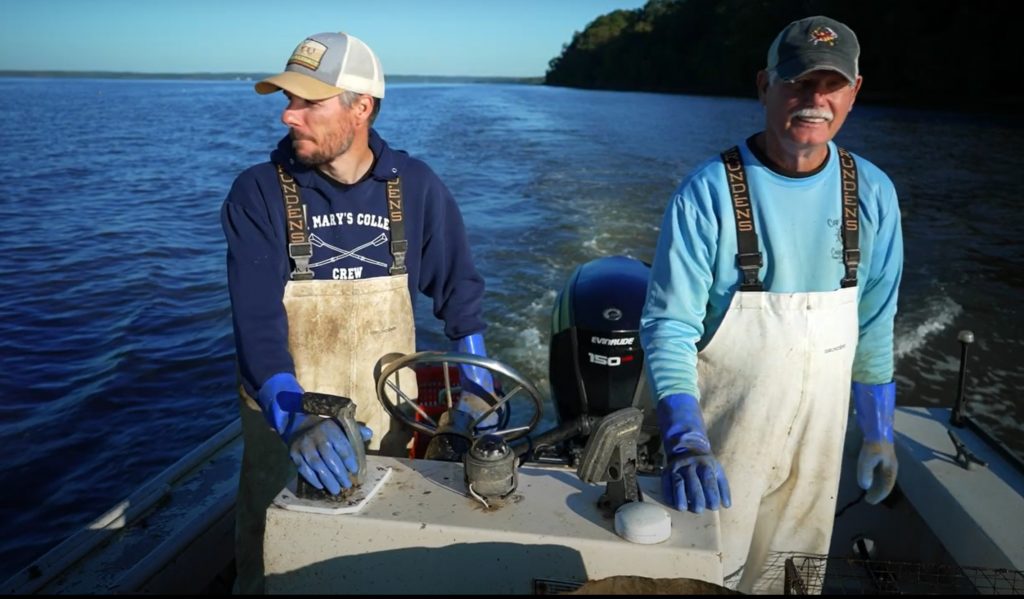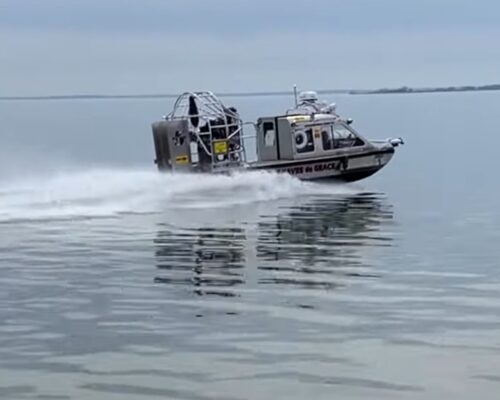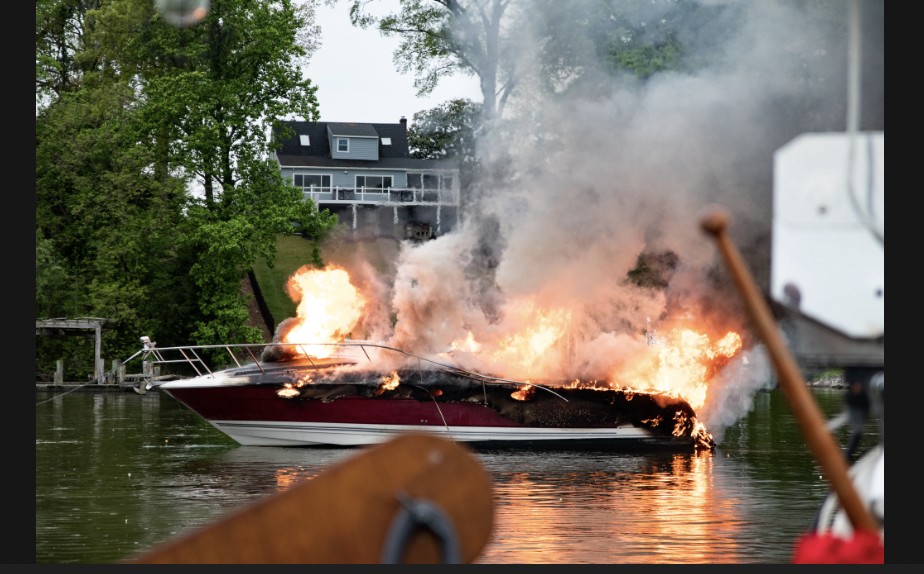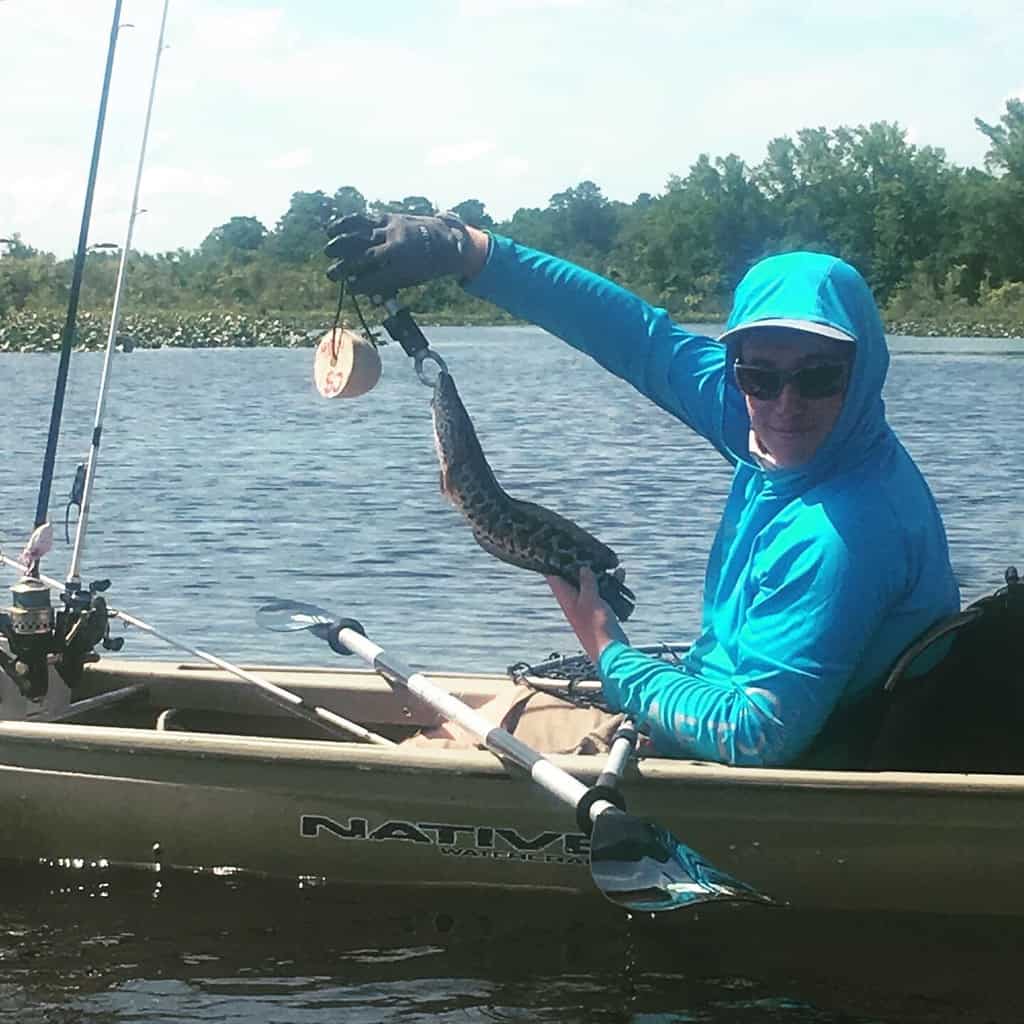Persistence Creek Farm, a family–owned farm and seafood business in Charles County, has won Maryland’s First Leopold Conservation Award. Its family, three generations of Warrings, “farm 245 acres, about half tillable ground and the rest wooded,” said Kevin Warring, who owns the farm with his wife, Lauren. His parents, Francis and Joyce, have their own farm just 10 miles from Persistence Creek Farm. They all work closely together.
“We rotate soybeans, corn and sorghum, and my father and I crab 250 pots,” Kevin continued. “We are part of two cooperatives that plant and harvest oysters in the Wicomico and Potomac rivers. Our farm is central to our way of life.”
According to the farm’s Facebook page, the Warrings employ sustainable practices that minimize inputs, maximize yield, protect the Chesapeake Bay, diversify landscapes for wildlife, and provide fresh crabs and oysters to local restaurants. They see the operation as “a confluence of how farming, fishing and forestry businesses can benefit natural resources.”
Given in honor of renowned conservationist Aldo Leopold, the Sand County Foundation and national sponsor American Farmland Trust present the Leopold Conservation Award to farmers, ranchers, and forestland owners in 23 states for land, water, and wildlife habitat management. In Maryland, co-presenters include the Keith Campbell Foundation for the Environment, the Maryland Association of Conservation Districts, and Maryland Farm Bureau Inc.
The Warrings take soil seriously. They annually rotate their crops to sustain soil fertility. They use no-till or minimum tillage on all fields to reduce run-off. They plant cover crops to protect soil microorganisms. And they conduct annual soil tests and tailor nutrients to each crop’s needs.
To enhance wildlife habitat and maintain productive forests, the Warrings have used financial assistance from the federal Conservation Stewardship Program and technical guidance from a forester with the Maryland Department of Natural Resources. By following a custom forestry plan, they thin acres of forestland, increasing timber growth rates for future harvests while boosting biodiversity and providing wildlife with food and cover. Family members have planted acres of shrubs, plus maple, pine and oak trees in buffers that stretch 50 feet on each side of Ross Branch stream. The buffers capture nutrients from crop fields, improve water quality, and provide nesting habitat for wildlife.
Two acres of ponds and wetlands provide habitat for frogs, ducks and deer, beside food plots of white clover, sunflowers, corn, and soybeans. Kevin has planted five acres of wildflowers and native grasses in prairie strips to attract Monarch butterflies and other pollinators. A stream-crossing project reduces erosion. A conservation easement at Persistence Creek Farm permanently preserves it from future development.
Since 2014, the Warrings have helped plant more than 100 million spat-on-shell oysters, benefitting the Potomac and Wicomico rivers as well as their seafood business. “We really think sustainable agriculture comes down to soil, water, and wildlife,” said Francis Warring. “It’s also for us a sustainable business. Here we try to get all those outlets to work together.”
More than a list of practices implemented on the farm, Kevin says that conservation is a mindset that he and Lauren are passing from one generation to the next. “When I think about my children, I think about the little pieces that I’m trying to put into them every day and Aldo Leopold’s Land Ethic. My dad has told me that you never really own land; you’re a steward until you pass it on,” Kevin said.
-John Page Williams




